| Time |
Agenda |
|
08:00
–
15:00
|
|
|
09:00
–
09:11
|
|
|
|
MC:
-
Khaled Madkhali
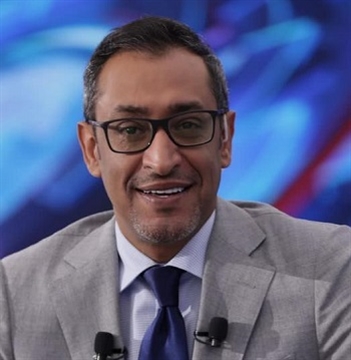 Saudi journalist, media professional and Presenter - Al Arabiya News Channel
Saudi Arabia
Saudi journalist, media professional and Presenter - Al Arabiya News Channel
Saudi Arabia
|
|
|
Key Speeches:
|
|
09:15
–
09:34
|
|
|
|
Cyber Security
Due to the rapid advancement in technology, threats to countries and the security of their borders are no longer based on the ground through military defence forces. Defence and security lines are needed in order to ensure that data and cyberspace are not breached and destroyed or used for extortion or other unethical acts.
The purpose of this discussion is to educate both the specialized and general public about the importance of cyber security and the role of individuals in defending cyberspace, as well as the scope of the threat and the danger that any breach or violation of the Cyber Security system may pose to individuals, institutions, and nations.
Focuses:
- What are the different types of cyber-threats?
- Who is in charge of information security in every country, and how is data protected?
- What exactly is social engineering, and how can it be used to commit data breach fraud?
|
|
|
Speaker
|
|
09:37
–
09:57
|
|
|
|
New platforms... targeted messages
Social media and digital platforms have succeeded in reaching different audiences, from adults and children with all of their specializations and interests. Tools and communication strategies for each platform created a distinct audience group, with some platforms dedicated to teenagers and young people, others to human rights activists and opinion and position holders, yet others to photography and visual documentation fans, and so on.
These platforms and means were extremely beneficial to government communication departments, as they improved their ability to identify their target audience and become more aware of the message types that best suit each audience, resulting in enhancing the quality of the public message and leading to a twice improvement in the quality of the its quality.
Focuses:
- Is it a priority or a necessity to define the target group in communications?
- Is young people's privacy today linked to the privacy of messages addressed to them?
- What distinguishes new generations from other social groups?
- How can government communication departments use the Tik Tok platform to reach out to teenagers and young adults?
- Is it necessary for government communication departments to hire young people who are familiar with the mindset of the new generations?
|
|
|
Speaker
-
Timothy Armoo
 Founder and CEO of Gen Z Specialist Agency, Fanbytes
Founder and CEO of Gen Z Specialist Agency, Fanbytes
|
|
10:00
–
10:20
|
|
|
|
Where I get my strength from?
When countries discuss their capacity and power centres, they emphasize the importance of young generations in their cultures. This means that, as many civilized countries have realized in the previous 50 years, their civilization is still young, providing them with an excellent opportunity to change and make a significant difference in the future.
Remie Akl emphasizes the importance of youth and their energy in shaping their country's future and bringing fundamental change to societies' values, cultural and customs through quality and innovative efforts.
Focuses:
- What are young people's perceptions of their social roles?
- What are the challenges and obstacles that young people face when it comes to devoting their time and energy to making a positive difference in their communities?
- Is social media a source of new opportunities or a source of distraction for young people, resulting in a waste of time and effort?
- Where and how do young people begin? Is there a well-defined strategy in place to change, act positively, and lead?
|
|
|
Speaker
|
|
10:23
–
10:43
|
|
|
|
Delivering the truth in communication
Ghandour will attempt to answer the pressing, timely, and topical question of where truth fits into communication and whether it can be simplified to shape public opinion and facilitate public life, in his own inimitable style. He will also reveal to his audiences how serious, academic concepts can be communicated to learners using unconventional techniques like drama, comedy, graphics, and animation; and why innovation should become a priority.
Focuses:
- Should serious, academic concepts be communicated to learners using unconventional techniques like drama, comedy, graphics, and animation?
- Can communication be simplified too to shape public opinion and facilitate public life? If so, then does innovation become a priority?
- What does the truth need to be unveiled? Is truth waiting to be told in good stories, good sound design, good lenses and colouring? Does the truth also require strong marketing and distribution?
|
|
|
Speaker:
|
|
10:48
–
11:33
|
|
|
|
The future relevance of government communication tools: An assessment
From the television era in the 1940s to the Cold War years, government communication has undergone significant transformations, some of which have resulted in changes in methods, techniques and tools becoming such well-established models for government communication specialists that they are now taught as part of the communications curricula at colleges and universities around the world.
In light of these changes, the question arises: Are existing government communication lessons and instruments still relevant to the future of communication? Or do communication organisations require major changes in content creation and presentation as well as in systems and strategies to influence the public? In government communication, what is a constant and what is a variable?
This session covers a number of lessons learned from key government communication strategies over the years, and future demand.
Focuses:
- Will the audience of the future wait for traditional means of communication?
- What established practices will survive, and what has become outdated and obsolete for current and future government communication?
- What drives change? The mentality and consciousness of the masses or the development of contemporary media?
- Should the reform begin with government communication practitioners or with a specialised academic curriculum?
- Will the audience of the future wait for traditional means of communication?
- What established practices will survive, and what has become outdated and obsolete for current and future government communication?
- What drives change? The mentality and consciousness of the masses or the development of contemporary media?
|
|
|
Moderator
|
|
|
Speakers
|
|
11:38
–
12:23
|
|
|
|
Government Communication methodologies & their impact on Collective awareness
In general, awareness is the term used to describe the human mind’s knowledge and understanding of what happens in societies. Awareness is divided into the individual consciousness, which is connected to each person separately, and the ‘collective consciousness’, a term coined by French sociologist Emile Durkheim, which forms the basis for society as a whole. Individual awareness, however, contributes effectively and fundamentally to the building of collective awareness through behaviours that are social practices.
When the Coronavirus pandemic broke out in 2020, the phrase ‘collective awareness’ started reappearing in the speeches of leaders and government officials. The pandemic underscored the importance of developing a collective awareness that understood its role and responded to pandemic policies, and of improving awareness and vigilance with regards to minds and feelings.
This session discusses strategies for raising awareness in government communication, beginning with the development of speeches, using scientific approaches when choosing the type of speech, language, timing, and local and international situations, as well as the expected communication strategies that lead to choosing the most prominent method of communication.
For the audience, there will be a review of models used to raise collective consciousness and ensure that the intended effect and immediate response are achieved.
Focuses:
- What are the most prominent models officials use when delivering speeches during the Coronavirus pandemic, and how can different rhetorical models be identified?
- To what extent does the target audience influence the models of discourse?
- Discourse development elements include readable language, body language, tone of voice, and time
- Strategies for determining the speech content, message, and timing
- Ways to evaluate the public’s reaction to the discourse's content and objectives
|
|
|
Moderator
|
|
|
Speakers
-
Mohammed AlMulla
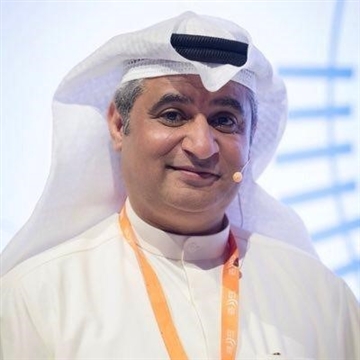 Kuwaiti writer and media professional
Kuwaiti writer and media professional
-
Amjad Taha
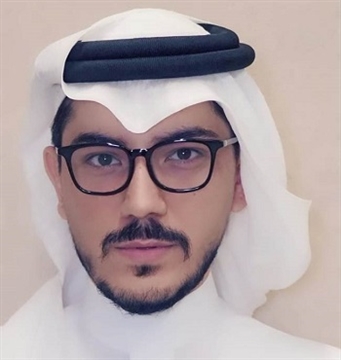 Bahrain-based Regional Director of the British Middle East Centre for Studies and Research
Bahrain-based Regional Director of the British Middle East Centre for Studies and Research
-
Sami Al Reyami
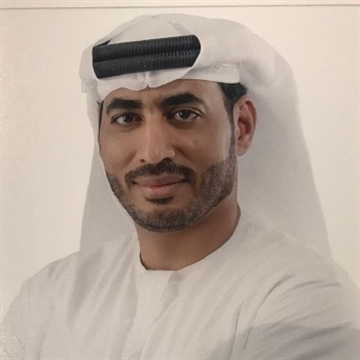 Editor-in-Chief of Emarat Al Youm newspaper
Editor-in-Chief of Emarat Al Youm newspaper
|
|
13:15
–
14:00
|
|
|
|
Who defines the rules of the game ? Content platforms or creators?
According to 2020 statistics, some 3.2 billion photos and 720,000 hours of online video were shared worldwide, three million were posted on Facebook, and 95 million photos and videos were uploaded to Instagram daily.
In the UAE, users of social media platforms spend an average of two hours and 55 minutes per day on these platforms, according to a survey published by WeRSM and Hootsuite in the same year, while they spend one hour and 57 minutes per day reading news on websites, platforms, and in newspapers. Live news is sixth on the list of topics that viewers search for on YouTube, right after movies and songs.
These statistics raise many questions for government communication departments.
First, do social media platforms rely on content created by news and media organisations and users? And which one depends on the other? Could this volume of content and information have been produced so quickly without these platforms and applications and, at the same time, would these platforms have survived and continued to develop without this content?
The answers to these questions appear to be varied and diverse, but the most frequently asked question by many experts and stakeholders around the world is: Who is the greatest winner? Why have these platforms become so influential that they now have such a strong grip on a global virtual reality? Can we expect to see the emergence of new competitive platforms? In light of all of this, what is the future connection among media organisations and content creators on the one hand
and among platforms on the other, and what is the future of media content and intellectual and material rights?
This session allows specialists and experts to ask detailed questions, and it opens people who work in government communication to new opportunities to contribute to the future of mass communication.
Focuses:
- Content - the status quo and the challenges
- Government communication departments and the impact of the digital content industry
- Modern communication players. Who will come out on top?
|
|
|
Moderator
-
Sherif Amer
 Presenter of the talk show “Happening in Egypt” on MBC Masr
Presenter of the talk show “Happening in Egypt” on MBC Masr
|
|
|
Speakers
|
|
14:05
–
14:50
|
|
|
|
Viewer versus Entertainment: Who is Watching Who?
The iconic American-Canadian film ‘The Day After Tomorrow’, which depicts the impact of climate change on Earth and opens with a drop in global temperatures and the start of a new Ice Age, was released in theatres throughout the world in 2004.
Following the success of the film, a group of scholars published a study titled ‘Does tomorrow ever come? Disaster narrative and public perceptions of climate change.' in 2006. They discovered that viewers had realised they were responsible for the environment and that they needed to change their consumption patterns in order to protect nature.
The study confirms the impact of entertainment content on audience beliefs and opinions, as confirmed by Canadian-American psychologist Albert Bandura. Imitation learning plays a significant role in accelerating lasting social change, and this indicates that the core value of respect for others is a core value of respect for oneself.
This session discusses entertainment content’s value with respect to raising public awareness, influencing people's behaviour and establishing lifestyle practices, and how government communication departments can use entertainment content in all its forms to achieve the desired effect and aim.
Focuses:
- Identifying recreational communication and its impact on society
- Is it possible for government communication agencies to manage entertainment content when communicating messages?
- How does the investment in entertainment content affect attitudes and behaviours?
- How aware is the general public about the messages conveyed by entertainment content?
- The art forms that are most influential in terms of cultural change
|
|
|
Moderator
|
|
|
Speakers
|
|
09:00
–
15:00
|
|
|
|
Podcasting: Reach your audience anywhere
The White House, the famous office and residence of US presidents, began various podcast programmes several years ago in order to improve public communication. A series of face-to-face meetings between White House officials and the public was planned, covering a wide range of topics and answering questions in real-time and publishing speeches to enable immediate and unprecedented access to the government institution's conversations and news.
Podcasts remain a key media arm for addressing and reaching audiences and answering their inquiries, whether the organisation represents a specific local administration or a service entity. Generating an audio product on a podcast platform remains a challenging job. Finalising a detailed plan, selecting and engaging with guests, finding new and intriguing themes, building a media identity for the programme, crafting questions and scripts, and marketing content are just a few of the things we will discuss in depth throughout the workshop.
Focuses:
- How to pick a topic that appeals to the audience's interests
- How to create appealing audio content
- How to become a podcast influencer
- Strategies for developing effective action plans
|
|
|
Trainer
-
Bassem Kamel
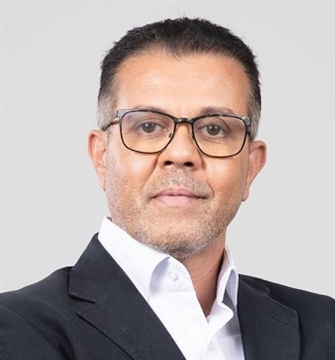 Senior Executive Produce, Radio
Sky News Arabia Academy
Senior Executive Produce, Radio
Sky News Arabia Academy
|
|
09:00
–
15:00
|
|
|
|
Create and manage "winning content" on social media
Due to the pandemic in 2020, people around the world increased their use of social networks and their content became the driving force for their patterns of consumption, attitudes and views on many global issues. According to Hootsuite and We Are Social’s report on the state of the digital world, during the pandemic months, 43% of internet users spent more time on social media platforms and podcast audiences grew by 15%.
This reality puts the content industry on social networking sites at the forefront for those concerned with mass communication. Whether they work for government communication units or as writers, journalists, artists, and the owners of businesses and organisations, they have to respond to this question: In this digital age, what content can address each audience?
Focuses:
- What exactly is good content?
- How can you figure out who your target audience is?
- How can content become a tool for social prosperity?
- What is interactive content, and how does it differ from traditional content?
|
|
|
Trainer
-
Jawdat Shammas
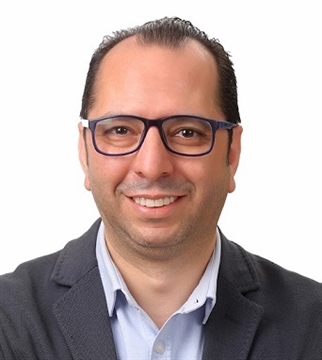 Digital marketing trainer and consultant
New Media Academy
Digital marketing trainer and consultant
New Media Academy
|
|
09:00
–
10:40
|
|
|
|
Seminar: Government Communication and Business Sustainability
The seminar seeks to explore the Emirate of Sharjah's Business Sustainability Committee's activities, vision, mission, and objectives, as it is one of the Emirate's most important committees with long-term goals and visions, ensuring the sustainability of operations under all circumstances.
PILLARS:
- What does "business sustainability" imply? What is the idea behind it?
- What are the concept's key elements? What role does government communication play?
- What are Sharjah's business sustainability plans? How does government communication work?
- What is the Sharjah's overall business sustainability strategy?
- What are the most effective methods for achieving business sustainability goals?
- What is the committee's message to all institutions to ensure business sustainability?
|
|
|
Moderator:
|
|
|
Speakers:
-
Sheikh Saif Bin Muhammad Al Qasimi
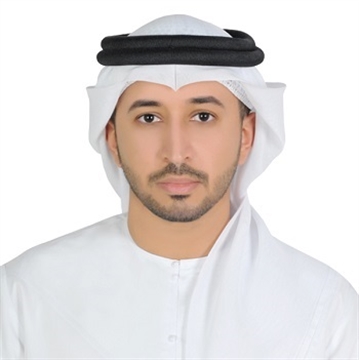 Director of the Prevention and Safety Authority , member of the Executive Committee of the Crisis and Disaster Management Team in the Emirate of Sharjah
Director of the Prevention and Safety Authority , member of the Executive Committee of the Crisis and Disaster Management Team in the Emirate of Sharjah
-
Dr. Hamdan Rashid Al Tunaiji
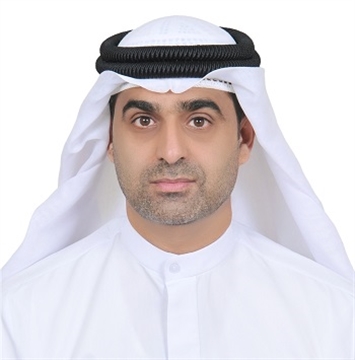 Head of the Crisis and Disaster Management Department at the Sharjah Police General Command, Chairman of the Executive Committee for Business Continuity in the Emirate of Sharjah.
Head of the Crisis and Disaster Management Department at the Sharjah Police General Command, Chairman of the Executive Committee for Business Continuity in the Emirate of Sharjah.
-
Fatima Mohammed Al Marzouqi
 Head of the Business Continuity Department, and a member of the Executive Committee for Business Continuity in the Emirate
Head of the Business Continuity Department, and a member of the Executive Committee for Business Continuity in the Emirate
|
|
11:00
–
12:00
|
|
|
|
Misleading news in the time of the Coronavirus
In 2020 and 2021, a pandemic like none other in modern history turned life upside down in most countries around the world. The magnitude of these events, which impacted health, economic and social aspects, did not obscure the image of international events around the world as conflicts raged and significant policies changed, particularly in the Arab region.
As a result of these events, false and malicious information and news began to flood social media platforms such as Twitter, Instagram, Facebook and TikTok, and the popular mobile application WhatsApp. Ostensibly, this was done to change political views, start a debate about conspiracy theories, or simply to attract celebrities for commercial purposes. People who believe such news are deluded and living in a world of political, medical and scientific illusions.
Focuses:
- Misinformation about the Coronavirus and its implications for society and international security
- Media technologies are posing a threat to social media platforms
- Press and misleading news in the time of Coronavirus
- Investigating and verifying the media’s credibility
|
|
|
Speaker
|
|
13:30
–
14:30
|
|
|
|
Where lies the future of print media today?
This session aims to predict journalism's future. There are many questions about the tools used by journalists and editors, as well as methods of communicating with readers and audiences, all of which centre around the forms and patterns of new and readable information.
Do readers still rely on newspapers to keep up with global developments and changes? Is the reader seeking background information and analysis? What awaits the press after today, given the quick transmission of information on social networking sites and the strong reliance on them in the advertising and promotion market? And, at a time when their readability is declining and the desire for advertising in them is declining, how long can newspapers continue to be a source of content for modern digital platform.
Many questions are posed and answered by the chief and managing editors of the UAE's daily journalism in a discussion that presents challenges, looks to the future, and attempts to find thoughtful solutions .
|
|
|
Moderator:
|
|
09:00
–
14:00
|
|
|
|
Researchers’ Platform
The International Government Communication Centre launched a distinguished initiative in 2019 during the eighth session of the International Government Communication Forum with the goal of providing knowledge content and an information base for all factors related to government communication, such as research, studies, books, references, and documented global best practices, in order to create an e-library. The initiative serves as a hub for information-sharing and research aimed at advancing government communication systems on a local, regional, and global scale.
The Researchers’ Platform includes a variety of academic and knowledge-oriented activities, a presentation on the IGCC’s most recent publications, and book reviews on topics related to government communication issues or the forum’s themes.
Researchers’ Platform’s objectives:
- Providing a free forum for students in UAE’s universities' communication and media faculties to discuss master's theses, research, and applied graduation projects in many fields of government communication.
- Bringing attention to the Professional Diploma Programme in Government Communication and social media.
- Hosting a group of academics and government communication professionals from local and federal agencies and bodies to discuss different aspects of government communication and offer their institutional experiences in this field through the presented papers and studies.
Researchers’ Platform’s Program
- Professional Controls and Ethical Standards in Government Communication Guide:
- Dr. Mohammad Ayish - American University of Sharjah
- Dr. Khayrat Ayyad - University of Sharjah
- Dr. Ahmed Farouk- University of Sharjah
- Dr. Sheren Mousa- Ajman University
- Crisis Communication - Effectiveness of the UAE Ministry of Health in Raising Awareness about the Coronavirus -Dr. Rahima Al Tayeb Aissani- Al Ain University
- The role of Media Literacy in Enhancing National Values -Dr. Shaban Hasan Hamada Alnasiri- AL Qasimia University
- Vision Reference: The Paths of Interaction of Social Media Users with Government Accounts during Covid-19 -Dr. Amal Badar - Ajman University
- The Concept of Technology Generation in the Strategic Planning of Governments - Dr. Samira Boudjema Setoutah - University of Sharjah
- Branding the Emirate of Sharjah: Strategy, Dimentions, and implications for Development - Mahbooba Abdulrahman Mohamed Saleh - University of Sharjah
- The Growing Importance of Chief Storytelling Officer - Rashed Bin Harib Al Falahi- the first Chief Storytelling Officer
- High-Impact Digital Content Creation - Wedad Ahmed Bu Humaid - Director of Government Communication Department at the Ministry of Health and Prevention
- Yasser loves university initiative – The winning file in the 7th edition of Sharjah Government Communication Award in the category of “Best Youth Initiative in Government Communication” - Yasser Mohamad Ahmad- Digital communication officer- Telecommunications and Digital Government Regulatory Authority.
|
|
|
|
|
|
Job Shadowing Programme
Job Shadowing Programme is designed for both employees and students. The training programme is conducted, according to a time and target-bound plan, by a qualified professional team who share their experiences and expertise with the aim of supporting work in media and administrative entities and equipping interns with the necessary knowledge through practice.
The Programme includes two modules:
- Experience the Professional Work Shadowing Porgramme
Pick up job experience through the Professional Work Shadowing Programme, which gives you the opportunity for practical learning by sharing the experiences and expertise of employees working in the field.
Trainers:
Aysha Al Kaabi
- How to be career creative
The workshop highlights six different ways of achieving career creativity at work and methods of transforming creative ideas into executive plans. It sheds light on the obstacles an employee faces in employing creative thinking in their field of work and how to overcome and address them..
Workshop Topics:
- Definition of creativity
- Six different ways of career creativity
- Develop creative skills at work
- Methods of converting creative ideas into operational plans
- Obstacles of creative thinking
Trainers:
Nouf Al Hosni
|
|
11:00
–
12:30
|
|
|
|
Media Professionals from other Fields... Inspiring stories
The session will discuss ways of media success, by reviewing examples of media professionals who came from outside the field and achieved exceptional successes, earning themselves a large audience base.
Focuses:
- Mechanisms of Media Influence
- The Attraction of Career in Media
- Media: Study or Talent?
|
|
|
Moderator:
|
|
|
Speaker:
-
Asaad Younis
 TV host and presenter of ‘Her Excellency’ programme
TV host and presenter of ‘Her Excellency’ programme
|
|
13:30
–
14:30
|
|
|
|
How does the community get involved in decision-making?
The effectiveness of government communication channels in the UAE is a key pillar of development plans and best practices, because the country’s institutions are eager to develop a constructive communications policy based on the principle of transparency and public opinion..
In the Digital Participation Index published as part of the UN E-Government Survey 2020, the UAE rose one position to 16th place. The index assesses citizens’ participation in policy-making and government decision-making and the development of public services.
This session hosts citizens representing various segments of society, including children, adolescents, youth, elderly, and people of determination in an interactive meeting with a government official for a lively discussion about how the public is involved in decision-making and the impact of their involvement.
Focuses:
- Methodologies for public-government communication, models and impact
- Mechanisms for assessing public opinion
- The manner in which the government responds plays a role in fostering trust between the community and officials.
|
|
|
Moderator
|
|
|
Speaker
|